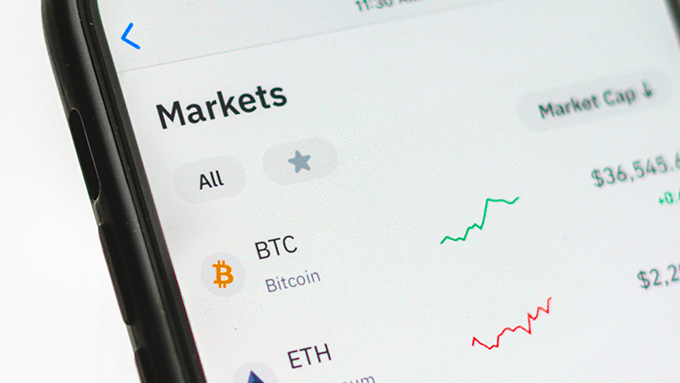Sustainability Linked Derivatives
Introduction
Sustainability-linked derivatives transactions involve the embedding of a cash flow in derivatives that will change in a sustainability-linked way, and institutions' compliance with environmental, social, and governance (ESG) objectives is monitored using specific performance indicators. In a joint study published in 2020, the European Capital Market Institute (ECMI) and the Centre for European Policy Studies (CEPS) highlighted the importance of sustainable derivatives for the transition to a more sustainable global economy, noting that they play an important role in achieving the three main objectives of the Sustainable Finance Action Plan (SF Action Plan)[1]. This is because derivatives can serve to channel capital into sustainable investments; help institutions hedge risks related to ESG factors; and facilitate transparency, price discovery, and market efficiency. [2]
Sustainability-Linked Derivatives and Transactions
Swap and Forward Transactions
An interest rate swap is an agreement between two parties to exchange interest payments to be made on a given principal amount over a specified period. Usually, one party pays a fixed interest rate and the other pays a floating interest rate. The purpose of interest rate swap contracts is to reduce the parties' borrowing costs or to match expected income and interest payments.[3] In the report published by the International Swaps and Derivatives Association, Inc (ISDA) in 2021 (the Report)[4], it is stated that sustainability-linked interest rate swaps will provide a reduction in payments if the relevant party meets certain pre-agreed ESG targets. However, if the organization fails to meet ESG targets, it may have to compensate by supporting climate action sustainability projects.
Examples of sustainability-linked interest rate swaps in the Report show that borrowers are paid a preferential interest rate if certain ESG targets are met. While some ESG targets are measured by scoring from certain institutions, certifications from a third-party environmental assessment organization may also be used as a measurement tool. In the event of a failure to meet the targets, the preferential interest rate reverts to the market-normal interest rate. [5]
Forward transactions are transactions in which all elements of a future purchase and sale contract, including the price, are determined by the parties in advance and the performance takes place at a future date agreed in the contract. [6] Sustainability-linked forward transactions in international markets include provisions in the derivative transaction contract such as a discount in the pre-determined price when the payment date arrives when the ESG targets set between the parties are achieved, or the relevant party will be obliged to pay a pre-determined amount to the non-governmental organization specified in the contract when the specified sustainability criteria are not achieved.
Credit risk swaps are products used to hedge default risks under borrowers' loans. In these transactions, the counterparty undertakes to pay a certain amount if the borrower defaults on certain obligations. In credit risk swaps, ESG criteria can be used to hedge against future losses due to climate change or other environmental factors, or to hedge against changes in the market value of sustainability-related loans or bonds in the market. [7]
Derivatives Traded on an Organized Market
Futures contracts and some options contracts are derivatives that can be traded on organized markets. With increasing capital allocation to ESG strategies, global exchanges such as Eurex, Intercontinental Exchange (ICE), CME Group, Nasdaq, Chicago Board Options Exchange (CBOE), Euronext, and Japan Exchange Group have recently launched several new equity index futures and options contracts linked to ESG benchmarks. [8]
Emissions Trading
An emissions trading system sets a cap on greenhouse gas emissions from certain facilities, which is reduced over time. Market actors can use derivative instruments underlying carbon emission allowances. These products are mostly options and futures, and some organized markets such as Intercontinental Exchange (ICE), CME Group, and Nasdaq include carbon emission derivative contracts. [9] Similarly, there are various products in futures and spot markets based on renewable energy certificates. Some organized markets include related contracts. [10]
Determination of Sustainability Criteria
The scope, timeline, baseline, and calculation methodology of sustainability performance targets should be clearly stated in contracts. Appropriate measures should be taken in case the calculations for the target criteria cannot be made for any reason and flexibility should be provided against unexpected events. The economic impacts of not achieving or achieving ESG targets should be clearly stated in the contract. [11]
Performance criteria should be measurable and objective. One way to ensure that the criteria are measurable is to reference global, regional, and local industry standards. [12] Verification of whether the counterparty has met the relevant target criteria within the specified timeframes can be done by an independent third party. Ensuring that the criteria are reliable and effective is important to minimize the risk of greenwashing and to encourage the development of this market.
Legal Regulations on Sustainable Derivatives
A note published by ISDA on regulatory considerations for sustainability-linked derivatives[13] examines separately the cases where the performance criteria and their cash flow implications are embedded in the derivative transaction (Category One) and the cases where the performance criteria and related cash flows are governed by a separate contract (Category Two). An example of a First Category transaction is a cross-currency swap that provides for additional payments or a preferential exchange rate as performance criteria are met. Examples of Second Category transactions are contracts where the derivatives contract and the commercial agreement on the performance criteria are signed separately and the derivatives contract provides for a reduction in derivatives payments if the performance criteria are met. [14]
The importance of this distinction arises when determining whether sustainability-linked derivatives fall within the definition of derivatives transactions as defined in the relevant jurisdictions' legislation. These agreements between the parties are subject to the regulatory provisions applicable to derivatives.
Under Turkish law, derivative instruments, as defined in the Capital Markets Law No. 6362 (CML) are; i) derivative instruments that give the right to buy or sell or exchange securities, ii) derivative instruments whose value depends on the price or yield of a security; the price or change in the price of a foreign currency; the interest rate or change in the rate; the price or change in the price of a precious metal or precious stone; the price or change in the price of a commodity; the statistics published by the institutions approved by the Capital Markets Board or the change in these statistics; derivative instruments that provide credit risk transfer, have measurement values such as energy prices and climate variables and are linked to the level or change in the level of an index formed from these, derivatives of these instruments and derivatives that give the right to exchange these underlying assets with each other, iii) leveraged transactions on foreign currency, precious metals and other assets to be determined by the Capital Markets Board. Derivative transactions may be forwards, swaps, options, or exotic products that may be combinations of these.
Given the definition in the CML, Category One transactions are considered to be derivatives in which the performance criteria are included in the linked cash flows and are likely to continue to be subject to all applicable derivatives regulations. For Category Two transactions, since the performance criteria are included in a separate agreement, it should be separately assessed whether these commercial agreements fall within the definition of a derivative instrument. In the CML, derivatives are broadly defined to include derivatives with measurement values such as climate variables and derivatives that are linked to the level or change in the level of an index created from these variables. In this context, it may be possible to evaluate the agreements between the parties regarding performance criteria within the scope of the legislation applicable to derivatives. However, each transaction should be evaluated on a transaction-specific basis within the framework of the provisions of the parties' commercial agreement, and whether the criteria in the CML are met or not should be evaluated on a transaction-specific basis.
A recent development in the regulation of sustainable derivatives is that ISDA published standardized drafts for negotiating sustainability-linked derivatives transactions in January 2024. With the addition of sustainability-linked derivatives product definitions to the ISDA library, standardized drafts were created in various areas, including what criteria for sustainability performance should be provided, cash flow mechanisms depending on whether relevant ESG targets are met, and parties' options in the event of market disruption.
Conclusion
Although sustainable derivatives transactions are increasing over time and the library on the subject is expanding, market actors, authorities and regulatory provisions need to evolve. Market participants should ensure that the provisions of the contracts they sign in this area are clear and understandable, and should include objective measurements and verifiable target criteria in their contracts.
- In March 2018, the European Commission (European Commission) announced the European Union Sustainable Finance Action Plan (EU Sustainable Finance (SF) Action Plan). The EU SF Action Plan supports the achievement of climate and energy commitments under the Paris Agreement and aims to direct capital flows towards achieving the United Nations Sustainable Development Goals (UN SDGs) and reduce financial risks arising from climate change.
- The European Capital Markets Institute and Centre for European Policy Studies: Derivatives in Sustainable Finance, Enabling the Green Transition; Brussels, 2020.
- Harding, Paul C.: Mastering ISDA Agreements (1992 and 2002); 3. Bası, Edinburgh, Pearson Education Limited, 2010, p.4.
- ISDA; Overview of ESG-related Derivatives Products and Transactions, January 2021.
- ISDA; Overview of ESG-related Derivatives Products and Transactions, p.4.
- Şenol, Ömer F.; Hukuki Açıdan Bankaların Tezgahüstü Piyasada Taraf Olduğu Türev işlemler, İstanbul, On İki Levha Yayıncılık, Ekim 2017, p. 31.
- ISDA; Overview of ESG-related Derivatives Products and Transactions, p.7.
- ISDA; Overview of ESG-related Derivatives Products and Transactions, p.8.
- ISDA; Overview of ESG-related Derivatives Products and Transactions, p.10.
- ISDA; Overview of ESG-related Derivatives Products and Transactions, p.11-15.
- ISDA; Sustainability-linked Derivatives: KPI Guideline, September 2021, p. 9.
- ISDA; Sustainability-linked Derivatives: KPI Guideline, September 2021, p. 9.
- ISDA; Regulatory Consideration for Sustainability Linked Derivatives, December 2021.
- ISDA; Regulatory Consideration for Sustaianbility Linked Derivatives, p. 5.
All rights of this article are reserved. This article may not be used, reproduced, copied, published, distributed, or otherwise disseminated without quotation or Erdem & Erdem Law Firm's written consent. Any content created without citing the resource or Erdem & Erdem Law Firm’s written consent is regularly tracked, and legal action will be taken in case of violation.
Other Contents

In its most basic form, securitization is the process of pooling and repackaging illiquid assets or rights with the purpose of converting them into tradable and interest-bearing financial instruments to be issued to capital market investors…

The reduction of the share capital is a transaction that results in the nominal decrease of the share capital item on the balance sheet. The nature of a share capital reduction is an amendment to the articles of association. Articles 473–475 of the Turkish Commercial Code No. 6102 (“TCC”) regulate the general principles of capital reduction.

A new legislative package, the Listing Act, was adopted by the European Council on October 8, 2024 to make capital markets within the European Union (“EU”) more attractive and facilitate companies' IPO process. The Listing Act amends the EU Prospectus Regulation, the EU Market Abuse Regulation, the Markets...

Crypto assets have become a significant component of financial markets in recent years, prompting the development of a regulatory framework in response to growing investor interest. In this context, both the amendments to Capital Markets Law No. 6362 (“CML”) and various resolutions issued by the Capital...

New ventures and, in this context, start-up companies have been essential players in economic life for a long time. Significantly in terms of new technologies and creative ideas, instead of established and large structures, new ventures and structures where individuals' personal contributions matter more greatly...

The website is one of the most important tools that reinforces the transparent management approach of companies and enables company stakeholders such as shareholders, company creditors, and those who carry out activities with the company to access important information about the company quickly and...

Crypto assets have created a significant change in the financial system with the emergence of blockchain technology. The decentralized and digital nature of these assets has offered a new method outside of traditional monetary systems...

The Keener decision represents a pivotal moment in interpreting and applying securities laws as it pertains to the definition and regulatory treatment of “dealers” within financial markets.This case arose from actions taken by the Securities and Exchange Commission (“SEC”) against Justin W. Keener, who was accused...

Responsible Management Principles (Stewardship Principles, SP) have been regulated by the Capital Markets Board (CMB) regarding the securities investment funds (Funds) founded by Portfolio Management Companies (PMC)...

Information holds paramount importance in the capital markets. Investors, whether seasoned professionals or newcomers, depend on various sources to guide their decisions amidst the complexities of the capital markets...

In the intricate web of finance and law, the US Court of Appeals for the Second Circuit’s ruling of Kirschner v. JP Morgan Chase Bank, N.A. (“Kirschner Ruling”) stands at the confluence of international banking regulations and securities law, presenting a thorough examination of the legal frameworks governing the...

There is no specific procedure in the Turkish Commercial Code (TCC) that publicly traded corporations must follow in terms of providing collaterals, pledges, mortgages and sureties (CPMS). Authority for and procedure of provision of CPMS are determined according to the general rules...

In line with the financing needs of companies and their desire for institutionalization, the number of public offerings shows an upward trend across Türkiye. Looking at the data published by the Capital Markets Board on its website regarding initial public offerings, it is seen that, it is seen that 35 public offerings...

The Communiqué on the Principles Regarding the Companies whose Shares will be Traded on the Venture Capital Market (II-16.3) ("Communiqué") has facilitated for private joint stock companies to sell their shares to qualified investors without a public offering. Thus, a new opportunity is created for joint stock...

Swiss Financial Markets Supervisory Authority (“FINMA”), through its decision dated 19 March 2023, approved the merger of Credit Suisse with UBS Group AG (“UBS”) and to write down the Additional Tier 1 capital bonds (referred to as AT1) issued by Credit Suisse, with a total value of approximately CHF 17 billion...

The Capital Markets Board’s (“Board”) long-awaited Communiqué on Crowdfunding No. III - 35/A.2 (“Communiqué”) entered into force through its publication in the Official Gazette numbered 31641 and dated 27 October 2021...

Mortgage covered bonds are one of today’s most common structured finance products. Although they have a prominent presence in the marketplace today, these bonds have historical roots in the Pfandbrief of 18th century Prussia. In the aftermath of the Seven Years War, King Frederick the Great implemented...





















































